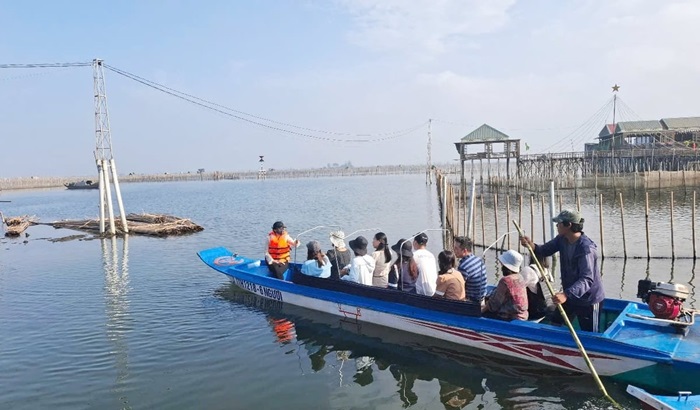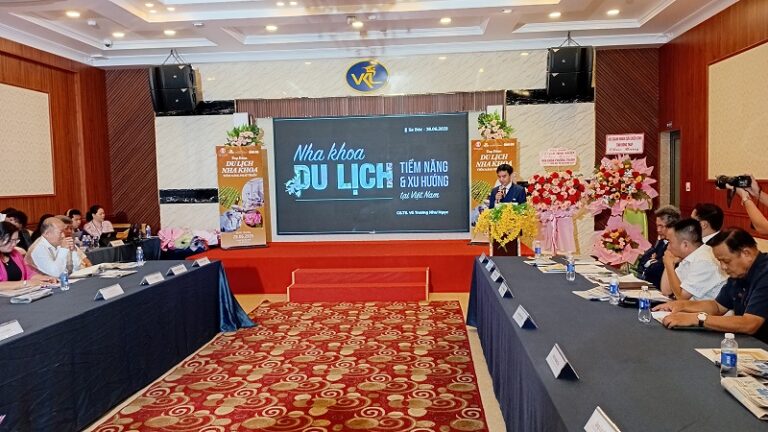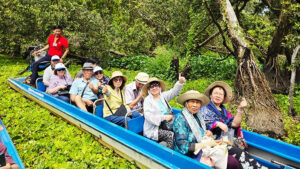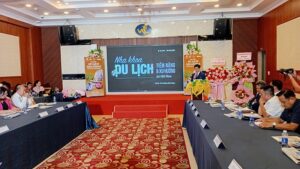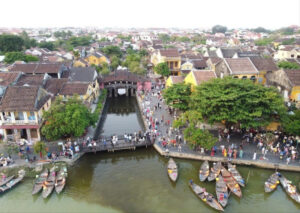Statistics show that the rate of using eco-friendly bags in traditional markets is still very low while Ho Chi Minh City sets a target that by the end of 2022, all supermarkets and commercial centers will use environmentally friendly bags. Government's efforts to encourage use of eco-friendly bags in traditional markets have been unsuccessful.
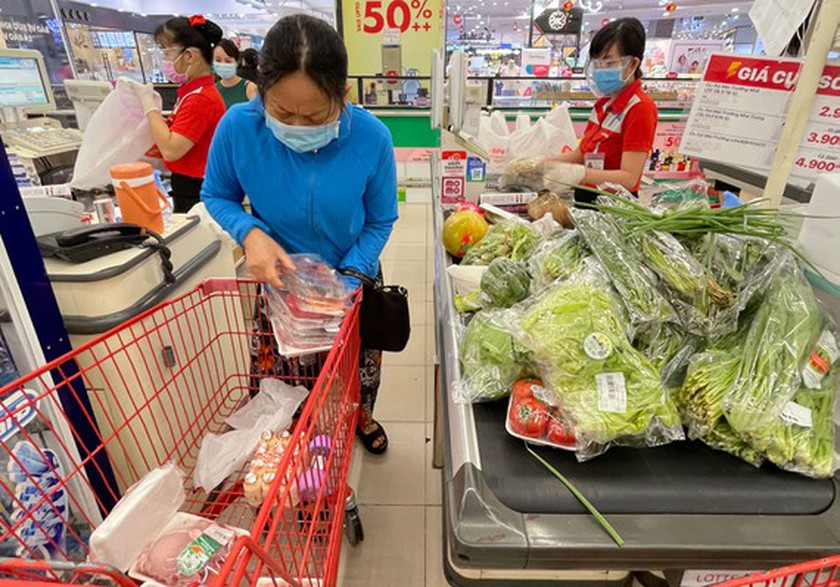
Supermarkets use different kinds of bags for packaging goods
Moreover, the southern metropolis targeted that small traders at traditional markets will reduce by 50 percent of non-biodegradable plastic bags in packaging and storing products for customers. The city is oriented toward reducing the use of non-biodegradable plastic packaging products by 65 percent by the end of 2023. However, statistics show that the rate of using environmentally friendly bags in traditional markets is still very low.
According to the Ho Chi Minh City Department of Industry and Trade, the demand for plastic bags in distribution systems is currently estimated at 16,548 tons a year, of which the volume of plastic bags accounts for 93.6 percent or about 15,490 tons. The number of plastic bags in traditional markets is 1,176 tons per year.
Environmentally friendly bags account for 18 percent or more than 200 tons and the rest are non-biodegradable plastic bags. The number of plastic bags used in modern forms of distribution such as supermarkets, and commercial centers is 15,372 tons annually, of which shopping bags account for 99.4 percent.
According to the assessment of the industry and trade industry, supermarkets and commercial centers such as Saigon Co.op and Satra systems, Bach Hoa Xanh, and Big C have almost used environmental protection bags to replace plastic bags. However, in general, the implementation of using environmentally friendly bags has not been synchronized, and the effect is not as expected.
Because environmentally friendly bags are difficult to compete with plastic bags in terms of price, the level of convenience is not equal and the habits of a part of consumers, government's efforts to encourage people to use eco-friendly bags were unrewarded. In particular, the use of non-degradable plastic bags in traditional markets is still common.
Most of the small traders at some traditional markets such as Ba Chieu market in Binh Thanh District, Tan Dinh market in District 1, and Binh Khanh market in Thu Duc City still use non-biodegradable plastic bags to pack goods for customers.
Ms. Le Thi Thai, a small trader selling vegetables and tubers at Ba Chieu market, said that every day when selling a lot of goods, she must use up 1-2kg of plastic bags. According to her, the market management board has disseminated and encouraged traders to use environmentally friendly bags, but several small traders still use them.
Worse, according to Deputy Manager of Tan Dinh Market Le Thanh Hai, at present, consumers’ awareness of environmentally-friendly shopping bags has not really been improved.
In analyzing the difficulties when implementing the program to use environmental bags in the Tan Dinh market, Mr. Le Thanh Hai said that the biggest difficulty is still the prices of the two kinds of bags. While non-biodegradable plastic bags cost about VND 17,000 a kilogram, whereas eco-friendly bags are sold for more than VND40,000 a kilogram.
Secondly, the design and quality of eco-friendly shopping bags have not met the needs of small businesses. While non-degradable plastic bags are much tougher and more durable and can hold many heavy and large-sized items, degradable bags do not have these advantages. Degradable bags will be torn and cracked right away if traders put heavy goods items in it; therefore, traders are not interested in using eco-friendly bags.
Although the Management Board of Tan Dinh Market has regularly called for using eco-friendly bags, the number of small traders using the shopping bags has not increased as expected. The rate of using environmental bags in the Tan Dinh market used to be about 60 percent, but now it tends to decrease. To improve the situation, according to the Management Board of Tan Dinh Market, it is necessary to have the policy to reduce the cost of environmental protection bags and increase the selling price of non-degradable plastic bags in addition to diversifying models, further improving the quality of shopping bags to suit the needs of small businesses.
With the same point of view, many small traders at Ba Chieu market in Binh Thanh District said that the biggest difficulty calling for small traders to use shopping bags today is the price, followed by the design and quality of bags. Previously, many small traders in the Ba Chieu market used eco-friendly shopping bags, but they are now no longer interested because these products do not meet the requirements.
A small trader in the Ba Chieu market said that in the past, the rate of small businesses using shopping bags reached 50 percent, and now it has decreased to just over 40 percent. The city needs to have the policy to reduce prices for eco-friendly bags and increase prices for unfriendly bags. In particular, it is necessary to improve the quality, and design more, or else traders will not use degradable bags.
According to Mr. Nguyen Nguyen Phuong, Deputy Director of Ho Chi Minh City Department of Industry and Trade, in order to reduce the use of non-biodegradable plastic bags, the Department of Industry and Trade will implement specific pilot activities. For instance, in the third quarter of 2022, environmental bags, and reusable bags will be given free of charge at traditional markets in districts and Thu Duc City.
Additionally, clips and videos of the bad impacts of non-degradable plastic bags will be broadcast in markets. Producers of eco-friendly bags will be supported.
By Minh Hai – Translated by Uyen Phuong


